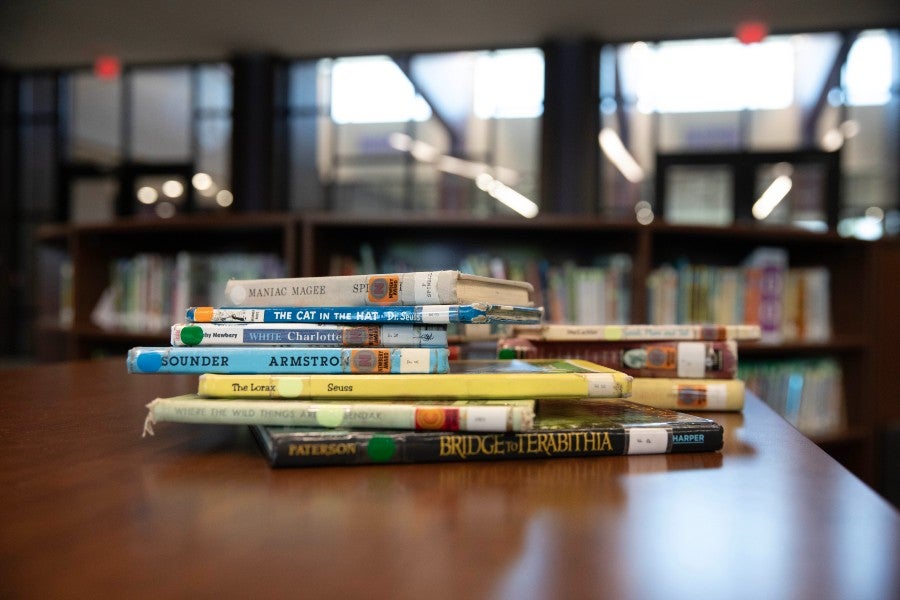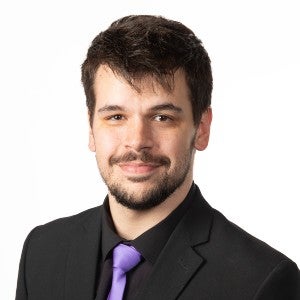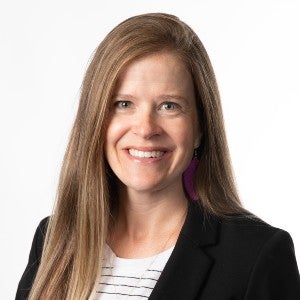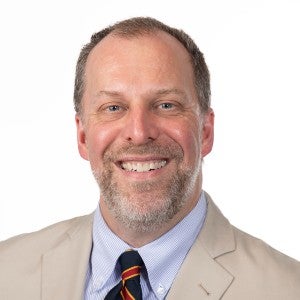Supporting our own in scholarship and research
Lipscomb funds faculty's summer research and scholarship to earn new certifications, develop a travel course and write two books.
From Staff Reports |

Each year, Lipscomb University awards up to six grants to allow faculty to focus on research and scholarship during the summer. In 2025, five faculty were awarded grants to obtain valuable certifications for their teaching and practice fields, to develop a course taking students all the way to Costa Rica and to develop two books, one on practical teaching strategies and one shining a spotlight on how children’s books influence our civic behavior and values.

Zachary Droll
Zachary Droll
Assistant Professor in Kinesiology
Completion of Certified Sports Nutritionist Credential
Droll will spend the summer studying for the Certified Sports Nutritionist credential from the International Society of Sports Nutrition in order to advance his research-based knowledge in sports nutrition to teach master's and graduate-level students who generally pursue the credential upon graduation to meet sports nutrition industry standards.
“This credential is highly regarded in the field, and will further enhance my ability to educate students, athletes and clients on evidence-based nutritional strategies to optimize performance and recovery,” said Droll. “Ultimately, this certification will allow me to provide deeper insights into the critical role of nutrition in athletic performance.”
Droll’s research interests are in understanding how training volume affects golfers and other athletes who have year-round competition schedules and can't rely as much on traditional periodization, as well as how sport supplementation affects golf performance. He completed his doctoral dissertation on training to increase club head speed and how accumulated fatigue affects putting skill in golf.

John Lewis
John Lewis (A ’00)
Professor in Biology and McClure Endowed Professor in Faith and Science
Development of Tropical Ecology Course in Costa Rica
Lewis plans to carry out a planning trip to Costa Rica to develop a three-week tropical ecology travel course for undergraduate students.
“The course will highlight the rich biodiversity and numerous ecotypes found in Costa Rica, one of the most ecologically diverse countries in the world,” said Lewis.
The class itself will be offered in summer 2026 as part of a new environmental biology concentration, and will count as either a biology elective or a general education science credit with a lab.
“Students will have the opportunity to explore tropical rainforests, cloud forests, mangrove swamps and coastal ecosystems to learn about the unique flora and fauna of each habitat,” said Lewis. “The course will provide hands-on, field-based learning experience in one of the most biodiverse regions of the world.”
Students will observe and identify a variety of plant and animal species; learn about ecosystem dynamics, threats to biodiversity, and conservation efforts; participate in hands-on field research and data collection and meet with local scientists, conservationists and community leaders, said Lewis.
Lewis has a Ph.D. in wildlife science and more than 15 years of experience teaching undergraduate biology courses, including several field-based courses. He has previously led student trips to west Texas and Italy and bi-annually takes ecology students on a camping trip to the Great Smoky Mountains National Park to learn about ecotypes and biodiversity.
Lewis has worked as a wildlife biologist, research assistant, and environmental technician, gaining valuable practical experience in methods such as helicopter surveys, backpack electrofishing and small mammal trapping.

Autumn Maxwell
Autumn Maxwell (BA ’03)
Assistant Professor and Coordinator of Field Education in Social Work
Completion of Healthy Outcomes from Positive Experiences certification
Maxwell will use this grant to become a certified HOPE Facilitator through the HOPE (Healthy Outcomes from Positive Experiences) National Resource Center at Tufts University in Boston, Massachusetts, allowing her to conduct HOPE training and workshops on campus and for the community.
There is growing research from the HOPE National Resource Center regarding the impact of positive childhood experience on all children, in all communities. This work began as a way to identify mitigating and protective factors of adverse childhood experiences, a concept developed in research in the 1990s.
“I believe the Four Building Blocks of the HOPE framework (relationships, environment, engagement and emotional growth) connect well to the Lipscomb concept of flourishing, building on individual and community strengths, and increasing support for improved well-being and resilience,” said Maxwell.
Knowledge of the HOPE framework will not only benefit social work students, but it can also be beneficial to the entire Lipscomb community and creates opportunities to impact the greater Nashville community by educating and supporting individuals, families, groups, organizations and beyond.
“As the coordinator of field education for the social work department, I am uniquely positioned to reach community partners to leverage this training for the visibility of Lipscomb and the department,” said Maxwell, a licensed clinical social worker with both psychiatric and medical field experience.

Emily Mofield
Emily Mofield
Associate Professor in Education
“Beyond the Screen: Tools for Deep Thinking and Meaningful Inquiry in a Digital World”
This grant will fund Mofield’s completion of her next book, Beyond the Screen, which will be officially published through Routledge Press. She will use the summer to synthesize sources, write the manuscript and collect data on perspectives of educators related to students’ technology use, attention and deep thinking.
“Research studies have linked the constant use of digital devices among students to fragmented focus, conditioning for instant gratification and a growing tendency toward surface-level skimming rather than deep learning,” said Mofield. “K-12 educators have shared in studies that digital technologies are creating an easily distracted generation with reduced cognitive stamina.”
Mofield’s book will explore how constant digital connectivity affects student learning and provide practical strategies for educators to address these challenges and foster deep engagement in learning.
The book will draw from Mofield’s expertise in gifted education, but will be written to help educators support a broad range of students with a framework and actionable tools that can be adapted to various educational contexts.
“By examining cognitive depth through the lens of digital distraction, I aim to provide a broad audience of educators with a fresh perspective on how technology influences students' ability to engage deeply with content,” she said.
In addition to teaching in Lipscomb’s education doctorate program and serving in roles with the National Association for Gifted Children (NAGC), Mofield has authored or co-authored 13 books in the field of gifted education.

Marc Schwerdt
Marc Schwerdt (BA ’93)
Associate Professor and Chair of History, Politics and Philosophy
“Children’s Literature and Civic Education”
Schwerdt is spending this summer completing a nuanced exploration of the civic content embedded within children’s literature, in order to complete the manuscript of his book Children’s Literature and Civic Education this fall.
Currently under contract, the book will dissect how children's literature subtly but significantly contributes to civic education, even in the absence of overt political agendas, said Schwerdt. By analyzing dozens of bestsellers and more than 60 Newbery Award winners from 1960 to 2023, this study will shed light on the pervasive civic themes and narratives woven into stories consumed by young readers.
“At the heart of this study is the development and application of a content instrument I designed in my doctoral research to measure the presence of civic and political concepts in children's literature,” said Schwerdt, who developed this book from his dissertation work completed and published in 2004 and 2005. “This instrument is crucial because it provides a structured and systematic way to quantify and categorize the civic content within the selected sample. The study's findings reveal that while explicit political messages are rare, the stories are rich with civic content that aligns with recognized civic education standards.”
The book will include chapters based on specific genres such as adventure stories, folklore, historical fiction and science fiction/fantasy.